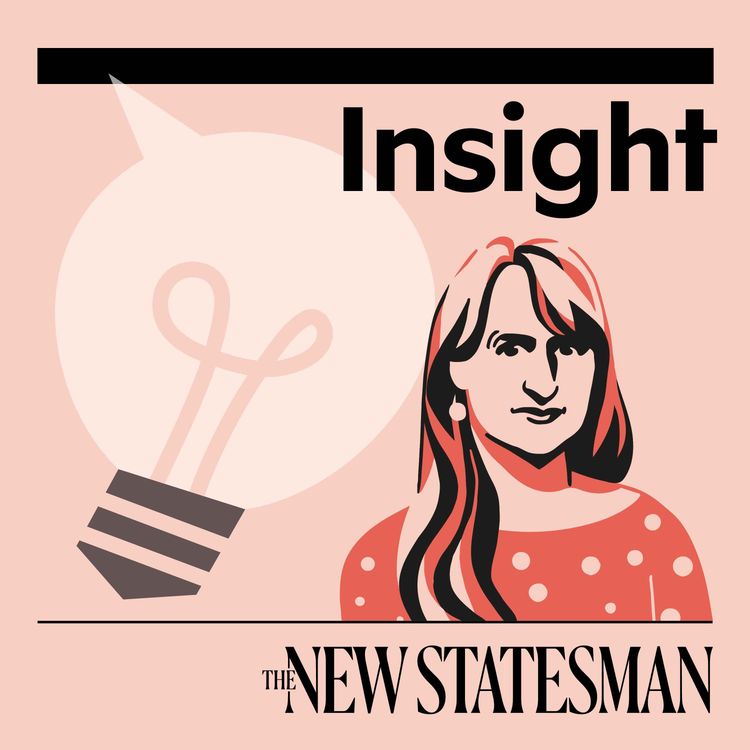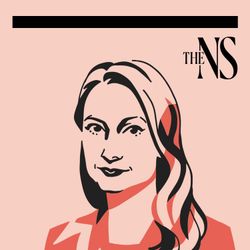Share

Daily Politics from the New Statesman
Sinn Féin's growing pains
In 2020, Sinn Féin, a left-wing party born out of Ireland’s nationalist movement, claimed victory. At the time Ireland’s two major parties, Fianna Fáil and Fine Gael, went into coalition with each other, preventing Sinn Fein from forming a government. Sinn Fein’s leader, Mary-Lou McDonald proudly claimed that she would be the first female Taoiseach.
Four years later, support for the left-wing has markedly dropped, scandals have surrounded them on both sides of the border, and party political identities have become blurred.
But when Ireland heads to the polls next week, what will be at the forefront of voter's minds? And how will issues of economy, housing, and immigration decide trajectory of the country's future?
Kate Lamble is joined by Eoin O'Malley, Finn McRedmond, Conor Kelly, and Dan O'Brien.
LISTEN AD-FREE:
📱Download the New Statesman app
MORE FROM THE NEW STATESMAN:
❓ Ask a question – we answer them every Friday
⏰ Get our daily politics newsletter every morning
✍️ Enjoy the best of our writing via email every Saturday
More episodes
View all episodes

Should the phrase "special relationship" be banned?
31:55|Yesterday afternoon in the Commons, Keir Starmer took a stance against Trump's attacks on Iran. The US President has expressed his dissatisfaction with the Prime Minister.Is a rift developing? Should the UK be pivoting away from the US and towards Europe? And should talk of the "special relationship" be banned from the government's parlance?Oli Dugmore is joined by journalist, author, and ex-Foreign Office special adviser Ben Judah to discuss.
Iran war: Trump is playing into Putin's hands.
23:24|While the US bombs Iran, the Kremlin will see immediate advantages for Russia.Vladimir Putin expressed “deep condolences” to the people of Iran over the killing of supreme leader Ayatollah Ali Khamenei by US and Israeli forces.The Russian president – currently leading his own brutal and illegal war in Ukraine – condemned what he called Khamenei’s “assassination” as a “cynical violation of all norms of human morality and international law”.Russia and Iran are long-term “strategic partners”. They signed a new treaty in January last year.But while Putin offers consoling words to Iran, the Kremlin will undoubtedly have eyes on the potential benefits to them of a US-Israel war on Russia’s ally.So, is Trump’s war in Iran playing into Russia’s hands?
Does Trump have an endgame in Iran?
45:20|Fiona Hill, former presidential advisor, joins Megan Gibson.
Rare diseases: from lived experience to lasting treatments | Sponsored
21:16|To mark Rare Disease Day, this special Spotlight episode explores why rare diseases - affecting an estimated one in 17 people in the UK – still face years of diagnostic delays and limited treatment options.Host Sarah Darwood speaks to CEO of LifeArc Dr Sam Barrell and Terry Pirovalakis, whose son Michael has been diagnosed with the rare neurological disorder SPG50. Their discussion looks at the reality of the “diagnostic odyssey”; gaps in data, investment and regulatory pathways; and the financial and structural challenges that limit progress in rare conditions.They also explore the growing role of parents as advocates and innovators, the case for a national rare disease champion, and why a more joined-up approach across government, regulators, industry and charities is essential to delivering faster diagnoses and access to life-changing therapies.This New Statesman podcast episode has been fully funded by LifeArc.Find out more about LifeArc’s Taskforce Report and recommendations.
"I'll handle a sea bass however I like" | Anoosh & Will's weekly round-up
34:16|Martin Lewis ambushed Kemi Badenoch, Your Party think bureaucracy will stop nuclear war, and the Sea Bass handling committee have released exciting new guidance.Anoosh Chakelian and Will Dunn round up the week's political news you might have missed.READ:Abandon all hope at the Your Party hustings
The end of the Starmer project?
50:50|Does the Greens' decisive victory in Gorton & Denton spell the end of Keir Starmer's Labour?After the worst possible outcome for Labour in the Gorton & Denton by-election, Ailbhe Rea joins Tom McTague on Daily Politics from the New Statesman.They discuss what this means for Keir Starmer, for the Labour party - and for the future of politics in Britain.READ: Inside the Greens' seismic Gorton and Denton win
Historic win for the Greens
14:12|Hannah Spencer, a plumber and Green Party councillor, is now the MP for Gorton and Denton.The party takes the seat from right under Labour, following weeks of what was seen to be a three way race with Reform.Megan Kenyon is joined by Ben Walker.
Puberty blockers, blocked
27:46|Should some children be given drugs to stop them going through puberty?That’s the question the NHS, the government and an independent research and ethics committee have been trying to answer.The “Pathways” trial, backed by the NHS and led by a team from King’s College London, aims to test the effectiveness and safety of puberty blockers for children experiencing gender dysphoria.At the end of 2025, the trial was approved to go ahead. Health Secretary Wes Streeting reassured parliamentary colleagues it “could not have received more oversight and scrutiny”. But now the agency in charge of medicine regulation has U-turned. The study is now paused because of ethical and safety concerns. All of which, Hannah Barnes reports today on the New Statesman website, they knew about when they first approved it.So how did the study get approved in the first place? And what does this tell us about the systems we trust to ensure medical research is safe and ethical?Also: Baroness Amos has released the interim findings from her review into England's maternity care, and says the system is "not working". Oli Dugmore is joined by Hannah Barnes to discuss.READ MOREInside the decision to pause the puberty blockers trialEngland's maternity system "not working" for anyone, report says
Andrew, Epstein and the crumbling crown
40:04|Last Thursday, Andrew Mountbatten-Windsor, was arrested on suspicion of misconduct in public office. He has since been released under investigation. The police have searched Andrew’s former home, Royal Lodge.The former Prince’s relationship to convicted paedophile Jeffrey Epstein is triggering a reckoning for not just Andrew, but the monarchy itself.Oli Dugmore is joined by Will Lloyd to discuss.